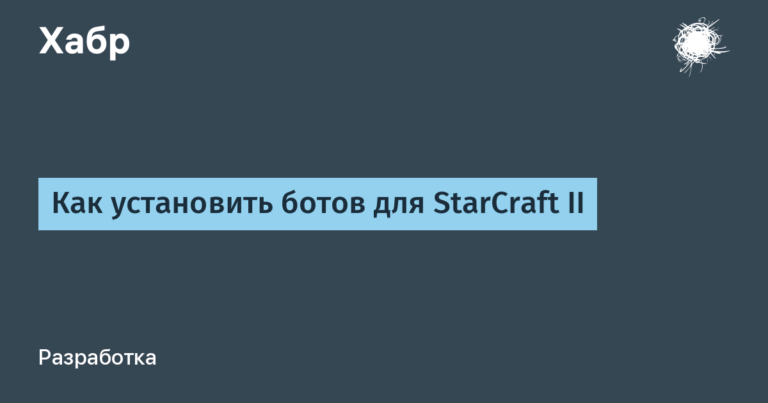What you need to know when applying for a Community Manager job
It so happened that for many years I have been involved in Community Management in IT companies producing software for the hosting industry. I have accumulated a lot of experience and I decided to share it. The context of the following narrative and its purpose are due to recent requests for advice from people who are applying for the Community Manager position.
So, there are important aspects that I would like to draw the attention of those who are planning to tackle this difficult matter.
1. Strong nervous system
Yes, you will be at the forefront. You will be the first to take on the pain of your company's clients. People will or will not go to technical support after communicating with you. It is much easier for users to write to a chat or community forum than to write to technical support, especially if it is also paid. Often these appeals, to put it mildly, will not always be complementary and constructive. The wave of negativity caused by one or another unpopular decision of the company will be the first to hit you.
This is where you will need a strong nervous system that is resistant to stress. Don’t get confused, don’t panic, don’t lash out at retaliatory insults and attacks, calmly turn the flow of negativity into a constructive direction, keep the discussion under control – this is what will characterize you as an authoritative and cold-blooded Community Manager in the eyes of both the community and your management.
Situations are especially unsettling when you waste a lot of energy and time trying to help a person with his problem, and in the end you receive a boorish, ungrateful message in response to yourself or the company. Or you simply don’t receive any message – the user, after a couple of hours of trying to help him, suddenly becomes silent. But in order to maintain your peace of mind, you only need to hear one word – Thank you.
In addition, in each community there is necessarily a specific layer of users who are extremely negatively disposed towards you personally or towards your company or its products or all together. They can use your products for years, but their main task is to mercilessly criticize everything that is being done, and often without mincing words and pouring out maximum poison in order to undermine the loyalty of other members of the community. This toxic layer of users requires a special approach and remarkable ability to control oneself 🙂
It's about the resilience of your nervous system to external influences. But there is also an internal one – from your company, colleagues and management. Here we move on to the second most important aspect of the Community Manager’s activity – Politics and Diplomacy.
2. Politics and Diplomacy
Of course, Community Manager is not a supporter. Although technical savvy is extremely important to him, Community Manager is first and foremost a politician and diplomat. He is one of the top people in the company, as its representative for the community. Communicating company policy, strategy, and the validity of decisions to users, while maximizing and maintaining community loyalty is top notch.
Often you have to admit that a company or one of its employees made a mistake, miscalculated, or applied a controversial decision. Understanding this and receiving negativity from users for this, a good Community Manager should be able to resolve the situation in such a way as to minimize the loss of loyalty, smooth out the negative effect and at the same time not lose his own authority – the most valuable thing that a Community Manager has. In many ways, it is earned by a rich and high-quality technical background. Equally important is excellent command of the language, in words – the ability to clearly and clearly explain, quickly and accurately understand those users who do not speak the language properly.
Authority gives freedom and trust. If it’s not there, and bosses and colleagues are watching your work, what you write, and they start teaching you how you should respond to this or that message – it’s terribly infuriating (hello to your strong nervous system).
But, as a rule, complaints from bosses arise not because of what you write, but because of how you write. And here point number three is important – Communication style.
3. Communication style, Tone of Voice and all that
After many years of working in a previous company, where I developed and approved my own style of communicating with the audience, the transition to working with the community of a new company was not easy for me. This was largely due to the fact that the English-speaking and Russian-speaking communities differ quite noticeably in terms of friendliness and toxicity.
The fact is that a good company must have an approved document about the Community Manager archetype and its Tone of Voice (ToV). For example, a friendly and affable guy with a gentle manner of communication, smoothing out rough edges as much as possible and trying to reduce the discussion to mutual stroking. Or maybe there is another option – an experienced, seasoned specialist with a tough and confident manner of speech, without flirting or jokes, speaking only to the point and allowing for slight harshness.
Of course, there may be a mix of similar archetypes, or a completely different one.
The community is heterogeneous. As a rule, there are both green beginners and experienced professionals. And you need to find your own approach to everyone – not to frighten a beginner with an abundance of incomprehensible terms in the answer and not to lose the respect of the pros with some stupidity.
Personal style is very important for a Community Manager. And if it does not coincide with the ToV that is accepted in the company and that the bosses expect from you, then it’s a lost cause. Unless, of course, you are flexible enough to quickly adapt and keep your job 🙂
Now most of my rough edges have been smoothed out, although from time to time my boss tells me that I responded too harshly, joked harshly, hurt someone’s feelings, that I need to be softer and all that 🙂
In general, if you are new to the profession, this point will be easy, just adjust your style to the one accepted in the ToV company. If you are an experienced specialist, get ready for the fact that it will not be easy in a new place. But there is another important aspect – the ability to hear and broadcast. More on this in the next paragraph number four.
4. Hear and broadcast
Essentially, Community Manager is an intermediary between the company and the community, between their interests. A conductor of feedback, pains and aspirations of the community in one direction and company policy in the other. It is important to do this in such a way that both parties hear each other well, and during the broadcast process, the values are squeezed out and the excess is peeled off. The community must understand perfectly well that thanks to you, they will be heard, the problem will not be allowed to slide, and that the company has a genuine interest in what users are complaining about, what they want, what they offer.
For the correct and correct processing and transmission of this information, excellent knowledge of the product, how it is designed, how it works is extremely important. In addition, in the field in which I work, the technical base in the form of system administration and understanding of network technologies is very important. This aspect is vital to maintaining your authority in the community. And as we remember, authority is the main value in this work.
There is also a nuance in the fact that the user of your product uses it in real conditions, in production. In this regard, he knows him better than you. The actual user experience is very different from your understanding of how the product works. If you do not use the product in the same way and under the same conditions as your community member, do not argue with him, take it as an axiom that his vision is broader and therefore he is a priori right. And here you cannot do without the last point in my protracted narrative – Teamwork.
5. Teamwork
Community Manager may be needed by different teams in an IT company. For example, I used to work within a team of Product Managers, broadcasting to them what people wanted, for the most part. Now I work as part of the marketing team. Working as part of such different teams has its own specifics and is fraught with many different nuances.
But no matter what team you are on, you will always need the support of almost everyone in the company. You may need help from support and development on technical details of problems, UI/UX team on interface-related issues, billing team on pricing and licensing issues, and so on and so forth.
Understand and accept the fact that you cannot know absolutely everything. The questions come in are so different that you cannot cope without the help of more competent colleagues. There is nothing wrong with asking them for help and assistance. At the same time, many of your colleagues can participate in discussions in the community with pleasure and willingness. Some do not associate themselves with the company, while others openly. And you also need to work with them and direct their enthusiasm in the right and constructive direction.
It is important to feel part of the team, not to be an introvert, and to maintain informal communication with the team. You won't be able to do it without her support, believe me.
You can also mention working with a team of experts that you can assemble from the most prominent members of your community. These are your first assistants, your support. But this is a separate topic, which I have already written about here.
There are still many other features of the Community Manager that I could talk about. But I described the most important thing. I hope it is useful to someone. My other articles, more specific and detailed, where I share my experience in community management, can be found in my profile. Thank you for your attention 🙂





